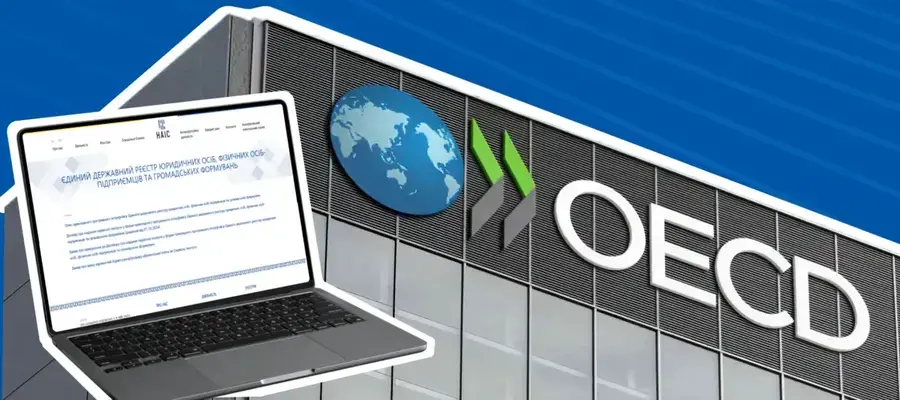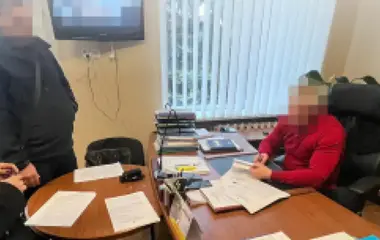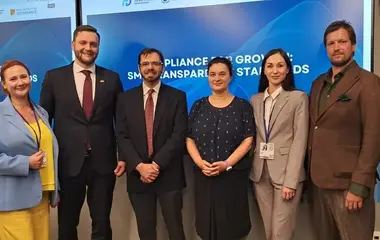The team of the National Agency on Corruption Prevention (NACP), led by Deputy Head of NACP Mykola Korneliuk, made a working visit to the Republic of Moldova at the invitation of colleagues from the National Integrity Authority (ANI) - an institution with nationwide jurisdiction in the field of corruption prevention.
As part of strengthening bilateral cooperation, and considering the shared European integration aspirations of Ukraine and Moldova, representatives of NACP and ANI signed a Memorandum of Cooperation.

The document aims to enhance the institutional capacity of both anti-corruption bodies and provides for the exchange of experience in such areas as the use of financial control tools, prevention of conflicts of interest, development and implementation of modern IT solutions, as well as the organization of joint trainings to improve the qualifications of employees of both institutions.
“Ukraine and Moldova are united by common European integration aspirations and membership in international anti-corruption organizations such as GRECO, OECD, and EPAC. This imposes shared obligations on our countries and provides opportunities to strengthen one another. We are pleased to share Ukraine’s experience in the field of corruption prevention with our Moldovan colleagues, as we are confident that the exchange of anti-corruption practices will accelerate the achievement of our common goal - EU membership,” said Mykola Korneliuk.
ANI President Lilian Chișcă thanked the Ukrainian colleagues for their visit and for the openness with which they shared their knowledge and experience.
“We were very interested to learn about NACP’s experience in the field of financial control and its unique technological solutions. The fact that NACP continues to improve its tools, detect dishonest officials, and ensure a high level of transparency and accountability even under martial law demonstrates the exceptional resilience and professionalism of our Ukrainian colleagues,” noted Lilian Chișcă.

During the visit, a number of activities were held to exchange experience in all areas - from education to financial control.
Deputy Head of NACP Mykola Korneliuk presented to his colleagues Ukraine’s main achievements in the field of corruption prevention and the challenges NACP faces in implementing anti-corruption policy.
Anna Kovtunenko, Head of the Department of Information Systems, Analytical Work, and Information Protection of NACP, presented the Ukrainian experience of electronic declaration to the partners. She spoke about the development of the Register of Declarations - from its launch to the new functions introduced during the full-scale invasion.

“The Register is replenished annually with 700,000 to 1 million declarations and currently contains over 9.7 million documents. The data are open to the public, and the analytical module LAC compares them with 21 state registers, which has proven effective. The Register is accessible from anywhere in the world, allowing declarants to submit information even under martial law, while ensuring a high level of data protection,” said Anna Kovtunenko.
She emphasized that Ukraine’s electronic declaration system is an example of how technology can ensure transparency and accountability even during wartime, and confirmed NACP’s readiness to share this experience with international partners.
Yuliia Kulikova, Head of the Department for Comprehensive Verifications at NACP, shared the Agency’s experience in declaration verification.
“Thanks to the risk-based approach to selecting declarations for comprehensive verification, signs of corruption and corruption-related offenses were found in over 52% of verified declarations. For comparison, in 2021 such violations were detected in only about 20% of verified declarations. During verifications, we identify facts of asset concealment, including those located abroad, cryptocurrencies, as well as signs of unjustified assets and illicit enrichment of declarants,” said Yuliia Kulikova.

Oleksandr Ampleiev, Head of the Department for Monitoring and Control over the Implementation of Legislation on Conflict of Interest and Corruption Prevention, shared with foreign colleagues the Agency’s experience in preventing and managing conflicts of interest.
“A conflict of interest is not merely a legal category. It is a critical point where a public official’s private interest may contradict their official duties, undermining trust in state institutions. The influence of private interest on the performance of official duties is the foundation of a corruption offense. Therefore, detecting and eliminating a conflict of interest helps prevent crimes. Implementing and continuously monitoring safeguards against conflicts of interest is key to strengthening integrity and trust in government,” emphasized Oleksandr Ampleiev.
Special attention during the visit was devoted to educational initiatives. During the visit to the National Anti-Corruption Center of the Republic of Moldova, Aliona Khylko, Deputy Head of the Department for Educational Work and Training Programs, introduced participants to the activities of the Integrity Office. She presented the projects “Transparent School,” “Transparent Vocational Education,” and “Transparent Universities.”
Moldovan colleagues were particularly interested in the fact that many Ukrainian educational institutions voluntarily integrate NACP’s educational and methodological materials on integrity into their curricula. In turn, they shared their own developments and successful practices in promoting integrity values in the educational process.
It is worth recalling that earlier this year, NACP presented its experience in declaration processes at an international conference in Poland.










